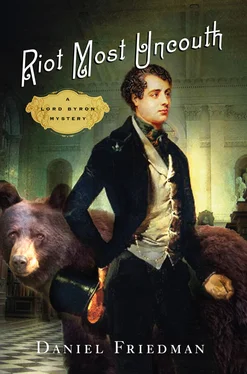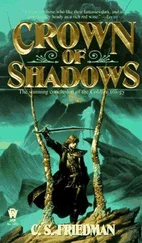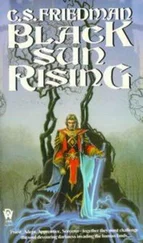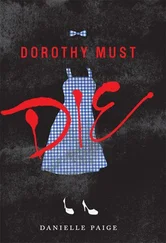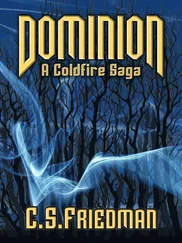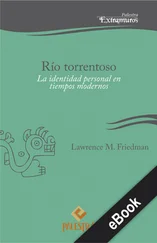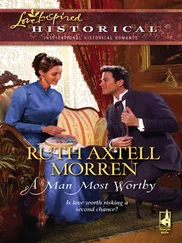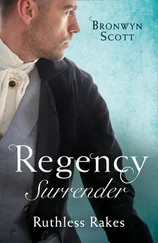Daniel Friedman - Riot Most Uncouth
Здесь есть возможность читать онлайн «Daniel Friedman - Riot Most Uncouth» весь текст электронной книги совершенно бесплатно (целиком полную версию без сокращений). В некоторых случаях можно слушать аудио, скачать через торрент в формате fb2 и присутствует краткое содержание. Год выпуска: 0101, ISBN: 0101, Издательство: St. Martin, Жанр: Исторический детектив, на английском языке. Описание произведения, (предисловие) а так же отзывы посетителей доступны на портале библиотеки ЛибКат.
- Название:Riot Most Uncouth
- Автор:
- Издательство:St. Martin
- Жанр:
- Год:0101
- ISBN:9781250027580
- Рейтинг книги:5 / 5. Голосов: 1
-
Избранное:Добавить в избранное
- Отзывы:
-
Ваша оценка:
- 100
- 1
- 2
- 3
- 4
- 5
Riot Most Uncouth: краткое содержание, описание и аннотация
Предлагаем к чтению аннотацию, описание, краткое содержание или предисловие (зависит от того, что написал сам автор книги «Riot Most Uncouth»). Если вы не нашли необходимую информацию о книге — напишите в комментариях, мы постараемся отыскать её.
Riot Most Uncouth — читать онлайн бесплатно полную книгу (весь текст) целиком
Ниже представлен текст книги, разбитый по страницам. Система сохранения места последней прочитанной страницы, позволяет с удобством читать онлайн бесплатно книгу «Riot Most Uncouth», без необходимости каждый раз заново искать на чём Вы остановились. Поставьте закладку, и сможете в любой момент перейти на страницу, на которой закончили чтение.
Интервал:
Закладка:
“I come bearing delectable treats, sure to expand the mind and excite the senses.” I handed Noreen the bigger bottle.
She examined it and ran her fingers over it, peering at the opaque glass and the heavy cork jammed in the neck of it. “I’ve never tried absinthe,” she said, looking at the peeling, yellowed label. “I wouldn’t even know how to drink it.”
I relit the lamp so she could appreciate summer-green color of the liqueur as I poured it into crystal glasses; glasses like the ones my father had smashed against the side of my mother’s long-lost castle at Gight.
“It’s very simple,” I told her. “You drink it with laudanum.”
The stopper extended into the little gray jar, serving as a long, thin implement for ladling out the precious fluid, one drop at a time. I let a fat, clear bead run down the glass arm and hang briefly on the end before falling onto a cube of sugar, which I held in the palm of my hand.
“When the Greeks spoke of the Muses, they must have been referring to opiates,” I said. “Without drugs, I think there would be no poetry.” I let seven drops of laudanum soak into the sugar, dispensing it like some pagan rite. I flourished the glass rod as if it were a magic wand.
She stretched her arms over her head and splayed her naked form before me. “Am I not inspiration enough for your poet’s soul?”
“Of course you aren’t,” I said. “My flesh yearns for you, but my mind needs to get twisted.” I placed the drugged sugar cube upon a slotted silver spoon and balanced the spoon over the rim of one of the glasses. I had a decanter of cool, fresh water, and I let it trickle over the cube so that the sugar and laudanum slowly dissolved and mixed with the absinthe.
This ritual, sacred to a certain, discerning sort of drunk, is called la louche. The water turns the emerald liqueur a pale, milky color, and it is said, as well, to release the mystical properties of the star anise and wormwood from which the absinthe is brewed. If one wishes merely to get drunk, absinthe served neat will oblige; its alcoholic content is nearly twice that of most other spirits. But absinthe, properly louched, is a different kind of experience. It fucks with your soul. Especially when you mix it with laudanum.
“Drink this, and you’ll understand,” I said as I gave her the glass.
“You are a wicked and dangerous man, if I may say so, Lord Byron, and I fear your influence will bring me unto ruin.”
“Ruin comes whether we court it or whether we cower,” I said. “We must sin while we can so that when ruin finds us, we deserve it.” In my head, Mad Jack’s voice: Mortality is only for the foolish and the poor.
I mixed a second glass, and we sat naked in the near dark, holding our green sacraments, staring at each other.
“To ruin, then, Lord Byron,” Noreen said, and we partook. Then I kissed her. She tasted of sugar and of the anise in the absinthe; like licorice candy. Her lips quivered with some fevered urgency as she pressed them against mine. Her heart fluttered beneath my caressing hand. That much is clear in my memory, though the rest slips into haze.
Rationality, I think, is the enemy of romance. It grounds one in one’s flesh and anchors one to the earth. This sad condition is inevitably fatal, and its devastating effects can be delayed only by the regular consumption of powerful intoxicants. I know writers who never partake; who put pen to paper in a state of stony sobriety. They’re terrible. Banal.
Whatever would happen afterward, my dim and shifting memories of that night assure me that what transpired between us was transcendent; the kind of awed experience that language can merely describe, but can’t fully communicate.
In that flickering lamplight with Noreen, I forgot about the murders and about my debts. I forgot my academic troubles and my clubfoot. I forgot about Olivia and about Sedgewyck and even about Violet. We tangled and disentangled, we merged and separated. Flowers bloomed from the wall and exploded into clouds of butterflies. But our idyll could not be prolonged: our elegiac now turned into a grim later; the echoes of Mad Jack’s voice grew louder, until his fury was like thunder; a storm raging inside my skull: Disappointment. Deformed. Vrykolakas. Ought to drown you in the river.
Menacing shadows undulated just beyond the reach of the lamplight, and one of them took corporeal form and lunged at us.
I think I remember Noreen screaming, and I remember scrambling amongst the tangled sheets, my hands seeming to belong to some other person as they searched for my pistol. I remember kicking out at some unseen assailant with my desiccated right foot, and failing to find purchase. But my hands found what they sought, and I brandished the sidearm. I remember taking aim, squeezing. The gunshot reverberating. A sound like galloping hooves.
The room flashed white, and time slowed until everything hung still, a macabre tableau. The woman, pale and petrified with fear, and insensible from drugs. The monster looming. And between them, the poet, gnashing his teeth and firing his gun. The dull gray ball hung, spinning in midair, floated lazily past its target, and melted away. And then the frozen enemy became liquid, and moved with preternatural speed. My weapon was discharged and spent, and the thing was upon me.
Its face was blurry, and its form seemed to stretch and melt away as I swung my fists at it. For a moment, I was sure it bore my father’s visage, but then the features distorted again and the attacker became unrecognizable to me.
Another pistol was somewhere nearby, but I couldn’t remember where. I had a knife, but it was on the floor with Noreen’s undergarments. So very, very far away. And the Professor was locked in his study. I could hear him bellowing and scratching at his door, but he couldn’t help me.
My mind wasn’t working, and the room had lost all sense of proportion. The nightmare engulfed me. I punched at it, but my arms seemed feeble, and its body was like stone. Something like a brick hit the back of my head, and I stopped resisting. My fingers wriggled, but they were limp and boneless; unable to grip. I could manage no further retaliation. Strong hands clamped around my neck, and I awaited the bite, but instead, the thing took hold of my head and covered my nose and mouth. I realized I was to be smothered like Violet Tower, and when I attempted to take air, a stink like that of some strong liquor filled my nostrils. I tried to open my mouth, but the thing held it shut. I couldn’t get loose from the monster’s grip and I couldn’t escape the chemical scent.
I realized then that I’d forgotten to scream. Joe Murray might have heard the gunshot, but I’d drunkenly discharged pistols before in my rooms on several occasions. He would ignore the sound. I looked over at the girl and saw her pale, stunned, rubbing with druggy confusion at her eyes. I wanted to tell her to shout for help, but I couldn’t speak.
Great waves of darkness surged around me, and I plunged into them.
As I fell, I could feel the vrykolakas all around me, long needle-fangs clacking together and leathery bat-wings beating in the darkness. I looked for Mad Jack among them, but I could not find him. He had abandoned me.
Chapter 29
The freshness of the face, and the wetness of the lip with blood, are the never-failing signs of a Vampire. The stories told in Hungary and Greece of these foul feeders are singular, and some of them most incredibly attested.
- Lord Byron, from a footnote to The GiaourMy mind condensed from its evaporated state a few minutes before I managed to lift my eyelids. My mouth was cracked and arid, and the thick ruin of my tongue was stuck to the inside of my cheek. The bedsheet was tangled around my legs, but I felt unforgiving hardwood against my chest and stiffness in my neck, and guessed I’d spent most of the night on the floor. Blood throbbed in my temples. Beneath my face was something metal that stank of burnt powder: the pistol. The air was heavy and tasted like copper. I summoned all my strength and lifted my swollen, preposterous head. It wobbled upon its narrow stalk, and I let it slide back to the floor. I pressed a hand against the back of my skull to stop the room from spinning. My fingers came away sticky. I peeled my eyes open, and I was staring at a cheap pair of men’s shoes with fat ankles sticking out of them.
Читать дальшеИнтервал:
Закладка:
Похожие книги на «Riot Most Uncouth»
Представляем Вашему вниманию похожие книги на «Riot Most Uncouth» списком для выбора. Мы отобрали схожую по названию и смыслу литературу в надежде предоставить читателям больше вариантов отыскать новые, интересные, ещё непрочитанные произведения.
Обсуждение, отзывы о книге «Riot Most Uncouth» и просто собственные мнения читателей. Оставьте ваши комментарии, напишите, что Вы думаете о произведении, его смысле или главных героях. Укажите что конкретно понравилось, а что нет, и почему Вы так считаете.
